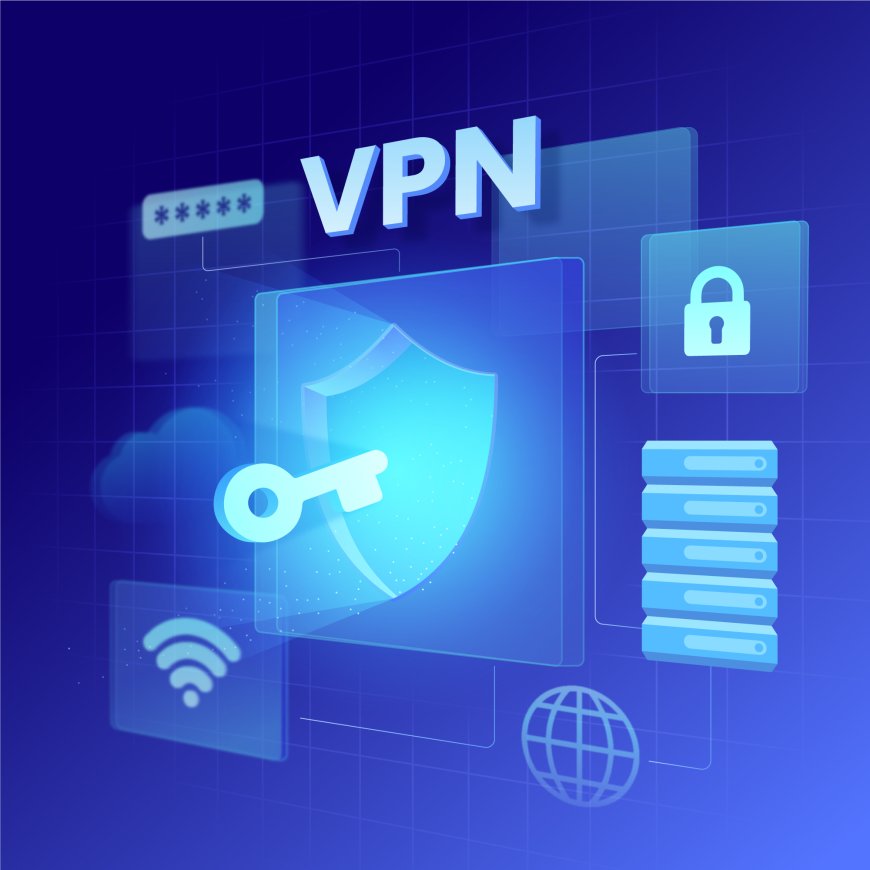Is a VPN Still Worth It in 2025? Everything You Need to Know
Wondering if a VPN is still worth it in 2025? This guide covers the latest benefits, risks, and use cases to help you decide if a VPN is the right choice for privacy, security, and streaming today.

In todays digital world, more people are connecting online than ever before whether for work, entertainment, or communication. As online activity increases, so do concerns about privacy, data security, and access to restricted content. This is where Virtual Private Networks (VPNs) come in.
But with an abundance of options, questions around affordability, performance, and need are common. Is investing in a VPN service still necessary in 2025? Can you rely on cheap VPN services without compromising your online safety?
Lets explore the essentials, benefits, drawbacks, and considerations of VPNs to help you make an informed decision.
What Is a VPN and How Does It Work?
A Virtual Private Network (VPN) creates a secure, encrypted connection between your device and the internet. Essentially, it acts like a private tunnel that hides your internet traffic from third parties.
How It Works:
-
Encryption: When you connect to a VPN, all the data you send and receive is encrypted.
-
IP Masking: Your actual IP address is replaced with the VPN servers IP address.
-
Location Spoofing: You can appear to be browsing from another country, allowing access to geo-restricted content.
For instance, a user in India can access the US version of Netflix or someone in the UK can use a VPN to access websites only available in the Middle East. This is one reason people search for the best VPN service for both security and content access.
Why Are VPNs Still Relevant in 2025?
Despite changes in internet laws, new privacy tools, and browser improvements, VPNs continue to play a crucial role in online privacy and unrestricted access.
1. Rising Cyber Threats
Data breaches, ransomware, and identity theft cases are rising. Cybercriminals use advanced tactics like phishing, Wi-Fi spoofing, and man-in-the-middle attacks. VPNs help mitigate these risks by encrypting data and hiding your IP address.
Example: In 2024, a major public Wi-Fi data leak affected users in coffee shops across Canada. Those using VPNs were largely unaffected because their personal data never passed through the open network in readable form.
2. Censorship and Content Access
In many countries, governments regulate what users can access. Journalists, students, and even average citizens turn to VPNs to bypass restrictions and get unfiltered information.
Example: A journalist working remotely from a country with strict censorship laws can use a VPN to securely access global news sources and communicate without surveillance.
3. Remote Work and Secure Access
With remote work now a permanent part of many industries, VPNs are crucial for employees accessing sensitive data on company servers.
Are Cheap VPN Services Trustworthy?
Affordability is a major concern, especially with so many cheap VPN services advertised online. While some are reliable, others compromise speed, security, or privacy.
What Makes a Cheap VPN Reliable?
Look for these features even in low-cost plans:
-
No-logs policy: The VPN shouldnt store user data.
-
Strong encryption protocols: At least AES-256 bit encryption.
-
Reasonable speed: Some free or budget services drastically reduce browsing speed.
-
Clear privacy policies: Transparency about data handling is essential.
Example: ProtonVPN and Windscribe offer free and low-cost plans that still provide good security, though with limited features compared to premium options.
Red Flags to Watch Out For:
-
Free services that make money by selling your data.
-
VPNs with a vague or nonexistent privacy policy.
-
Lack of customer support or server options.
-
No independent audits or security credentials.
Choosing the Best VPN Service for Your Needs
The best VPN service isnt necessarily the most expensive. Its the one that aligns with your goals. Heres a breakdown of what to consider:
Example: A remote worker might prioritise speed and data security, while a student looking for cheap VPN services might value affordability and global access for research.
Who Should Use a VPN in 2025?
VPNs are not only for tech experts or privacy advocates. They serve a variety of people in different use cases:
1. Frequent Travellers
People travelling often use public Wi-Fi. VPNs ensure their sensitive data (passwords, banking info) isnt exposed.
2. Content Enthusiasts
If you love international TV shows, music, or websites restricted by location, a VPN opens up the full web experience.
3. Students and Researchers
VPNs help bypass restrictions on educational content or access to libraries not available in a students country.
4. Activists and Journalists
For users in politically sensitive regions, VPNs protect their identity and allow safe communication.
Pros and Cons of Using a VPN
Pros:
-
Enhanced security and privacy
-
Access to geo-restricted content
-
Safe browsing on public Wi-Fi
-
Avoid bandwidth throttling
Cons:
-
Can reduce internet speed slightly
-
Free or cheap VPN services may have limitations
-
Not all websites support VPN traffic (e.g., banking apps)
-
Some countries restrict or block VPN usage
VPN vs. Incognito Mode: What's the Difference?
Many confuse VPN with private browsing (incognito mode), but they serve different purposes.
In short, a VPN offers deep protection; incognito mode only hides your local browsing history.
Common Misconceptions About VPNs
"VPNs Make Me 100% Anonymous"
False. While they enhance privacy, they dont make you invisible. Your behaviour online, like logging into personal accounts, can still identify you.
"Only Criminals Use VPNs"
VPNs are legal in most countries and widely used by businesses, educators, and regular users. They are tools for privacy, not illegal activity.
"Free VPNs Are Just as Good"
Free services often come with speed limits, ads, fewer server choices, or data logging policies. You may find cheap VPN services that strike a better balance.
Future of VPNs: What's Next?
As online threats evolve, VPNs are adapting with:
-
Quantum-resistant encryption protocols
-
Integrated password managers
-
Split tunnelling and kill switches
-
Smart device compatibility
We're also seeing VPNs built into browsers and operating systems, making them more accessible and user-friendly. Some companies now offer VPN-as-a-service to large organisations.
In 2025, VPNs are not just helpful, theyre necessary for anyone who values privacy, freedom, and security online. Whether youre working remotely, researching global content, or streaming your favourite shows, the right VPN can transform your digital experience.
If youre budget-conscious, many cheap VPN services offer good entry-level protection. But if privacy and speed are top priorities, its worth investing in the best VPN service that fits your personal or professional needs.
Just remember: not all VPNs are created equal. Be cautious, do your research, and use the tool responsibly.
FAQs
1. Is it legal to use a VPN in my country?
VPNs are legal in most countries, including the US, UK, Canada, and most of Europe. However, some countries like China, Russia, and Iran restrict or ban VPN usage. Always check local laws.
2. Can I use a VPN on my phone?
Yes. Most VPN providers have mobile apps for Android and iOS that work similarly to desktop versions.
3. Will a VPN slow down my internet speed?
There may be a slight decrease in speed due to encryption and rerouting, but high-quality VPNs minimise this effect. The best VPN service will have optimised servers to ensure minimal lag.
4. Can I use a free VPN instead of a paid one?
You can, but free VPNs often come with restrictions like limited bandwidth, ads, and lower privacy standards. Many users prefer reliable, cheap VPN services for a safer experience.
5. How do I know if my VPN is working?
You can test it by checking your IP address online. If your real location is hidden and matches the VPN server, its working. Some VPNs also provide dashboard indicators when protection is active.











































